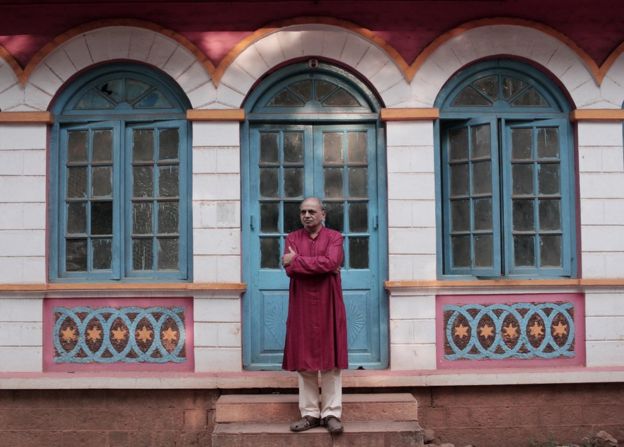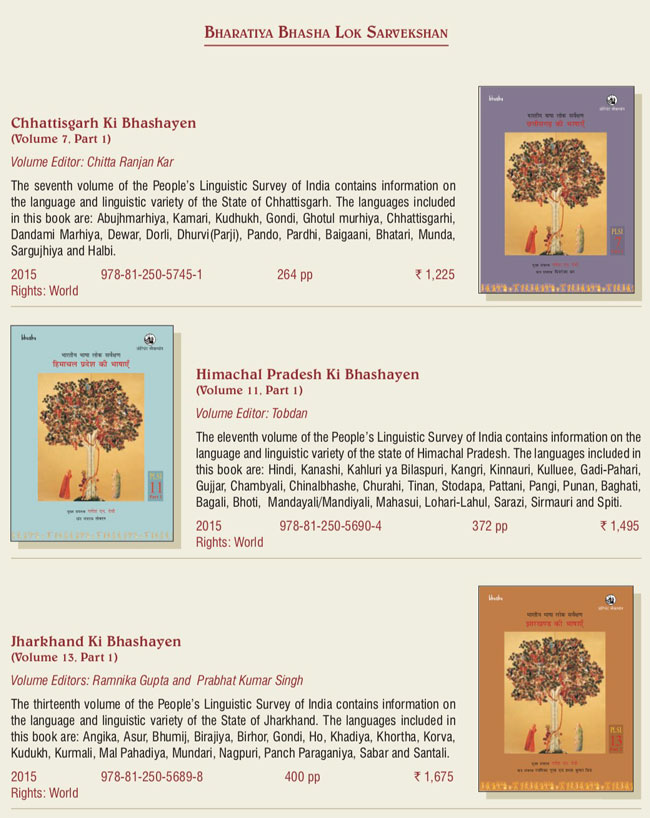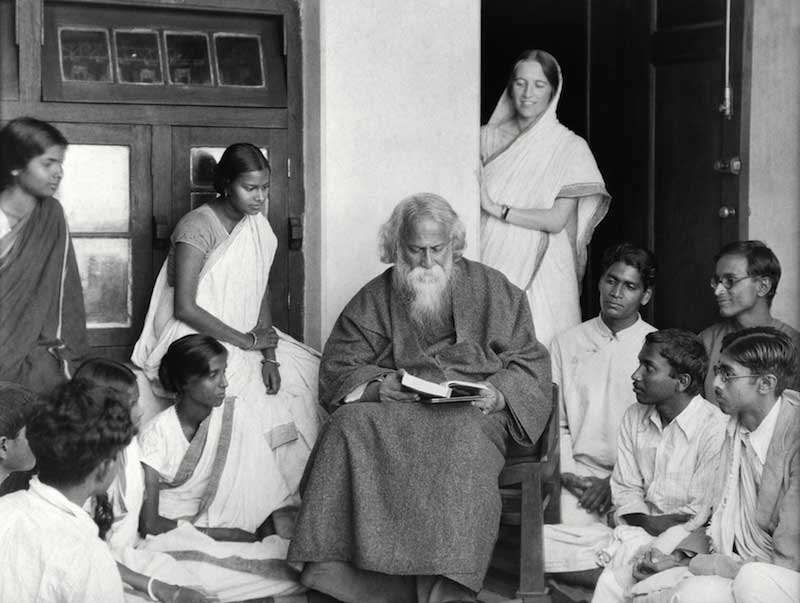The census of India says the country is losing languages at an alarming rate. But the People’s Linguistic Survey of India seems to say there’s more to it than meets the eye.
Wherever the colonial power was played the local languages were destroyed completely: in Australia, in United States, in Canada. In this country so many languages remained alive despite a long spell of colonial rule. So the people of this country deserve the credit for all this work. [3:57]
Those links in turn get relinked. I mean, they go up to Armenia, to Turkey. Now this is one route: Turkey to China to Tibet to Bhutan to India.
The other route is Armenian, came through Iran, to India and became Sanskrit. The language of Zenda Vesta became subsequently – after many, many centuries, after nearly a gap of 800 to 1,200 years – the early version of the Sanskrit of the Vedas. So languages are linked globally. [5:25]
Nations don’t make us human – languages make us human. But languages make us behave like civilised beings. [7:48 min.]
Source: “The Curious Case of India’s Dying Languages”, Scroll.in (YouTube 5 February 2018)
URL: https://youtu.be/LG1m0e3lWoQ
Date Visited: 24 December 2021
All States and Union Territories of India are listed here | Interactive map >>

Ganesh Devy undertook 300 journeys in 18 months to explore India’s languages […] Seven years ago, he launched his ambitious People’s Linguistic Survey of India (PLSI), which he called a “right-based movement for carrying out a nation-wide survey of Indian languages as people perceive them”.
As the indefatigable language hunter turned 60, he undertook 300 journeys in 18 months across the length and breadth of India to search for more languages. He paid for his trips using money he earned by delivering lectures in universities and colleges. He travelled night and day, revisiting some states nearly 10 times, and religiously kept a diary. […]
“Our languages have survived tenaciously. We are truly a linguistic democracy. To keep our democracy alive, we have to keep our languages alive.” – Prof. Ganesh Devy, “The man who ‘discovered’ 780 Indian languages”
Read the full story by Soutik Biswas, BBC News 27 (October 2017) >>

Order a publication on any of the languages covered by the
People’s Linguistic Survey of India | Official website >>
https://orientblackswan.com/downloads/ELT_2015.pdf
Worldcat.org search >>
Tips: discover publications released by Indian publishers and institutions by typing “tribal language” in the search field; refine your search by including the name of a tribal community (e.g. “Bhili language”, “Gond language”, “Santali language”, “Toda language”, “Warli language”), an Indian State or Union Territory (e.g. “Andaman”, “Jharkhand”, “Telangana”, “Tripura”, “West Bengal”), a region (e.g. “Bastar”, “Narmada”, “Nilgiri”, “Northeast India”, “Wayanad”), author, publisher, or preferred language.
Find scholarly books, poetry and fiction relating to tribal culture – Indian publishers
List of sites covered by this Google custom search engine
To find children’s and educational books or search Indian periodicals, magazines, web portals and other sources safely, click here >>
Search tips
Combine the name of any particular state, language or region with that of any tribal (Adivasi) community.
Add keywords of special interest (music, poetry, dance just as health, sacred grove and biodiversity); learn about the rights of Scheduled Tribes such as the “Forest Rights Act” (FRA); and the United Nations “Declaration on the Rights of Indigenous Peoples”, “Universal Declaration of Human Rights”, “women’s rights”, or “children’s right to education”.
Ask a question that includes “tribal” or “Adivasi”, for instance: “Adivasi way of life better?” (or “tribal way of life worse?”)
Specify any particular issue or news item (biodiversity, bonded labour and human trafficking, climate change, ecology, economic development, ethnobotany, ethnomedicine, global warming, hunter-gatherers in a particular region or state, prevention of rural poverty, water access).
For official figures include “scheduled tribe ST” along with a union state or region: e.g. “Chhattisgarh ST community”, “Himalayan tribe”, “Scheduled tribe Tamil Nadu census”, “ST Kerala census”, “Particularly Vulnerable Tribal Group Jharkhand”, “PVTG Rajasthan”, “Adivasi ST Kerala”, “Adibasi ST West Bengal” etc.
In case the Google Custom Search window is not displayed here try the following: (1) toggle between “Reader” and regular viewing; (2) in your browser’s Security settings select “Enable JavaScript” | More tips >>
Note: hyperlinks and quotes are meant for fact-checking and information purposes only | Disclaimer >>

UNESCO World Heritage Centre >>
“The highest education is that which does not merely give us information but makes our life in harmony with all existence.” – Rabindranath Tagore | Rabindranath Tagore: a universal voice – Unesco >>
Learn more
Adivasi Academy & Museum of Adivasi Voice at Tejgadh
Adverse inclusion | Casteism | Rural poverty
Anthropology | eBooks, eJournals & reports | eLearning
Central Institute of Indian Languages (CIIL) Mysore
Colonial policies | Denotified Tribe vs. “criminal tribe“ | Imprisonment & rehabilitation
eBook | Adivasi Stories from Gujarat – Bhasha Research and Publication Centre (Vadodara)
eBook | Background guide for education
Endangered language | PeoplesLinguisticSurvey.org
Ganesh [G.N.] Devy | Publications | Lecture “A View of Higher Education in India”
History | Colonial policies | Freedom Struggle | Independence
Human Rights Commission (posts) | www.nhrc.nic.in (Government of India)
India’s Constitutional obligation to respect their cultural traditions
Languages and linguistic heritage
Literature and bibliographies | Literature – fiction | Poetry
Multilingual education is a pillar of intergenerational learning – Unesco
Museum & Society – A re-evaluation of Adivasi Heritage by Prof. Ganesh Devy
People’s Linguistic Survey of India | Volumes (PLSI) | PeoplesLinguisticSurvey.org
Scheduled Tribes | Classifications in different states
Video clips taken at Tejgadh and related information
Video | “Nations don’t make us human – languages make us human”: Ganesh Devy
Video | Tribes in Transition-III: “Indigenous Cultures in the Digital Era”
Tip: click on any red marker for details on endangered languages in a particular region of India.
Please note: the facts and figures cited (via hyperlinks) links call for updates and fact checking >>
Cultural invisibility – India’s 600 potentially endangered languages | Linguistic Survey of India (official website) >>